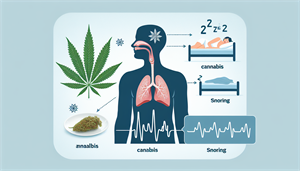
Nasal Congestion and Snoring
Struggling with nasal congestion and snoring can disrupt your sleep and that of your loved ones. This concise guide explores why congestion leads to snoring and provides you with actionable solutions. Gain insight into the causes and learn effective strategies for a peaceful night’s sleep.
Key Takeaways
Nasal congestion can cause snoring by increasing airway resistance and creating suction in the throat, which potentially collapses the airway; addressing congestion can improve sleep quality. Factors contributing to nasal congestion and snoring include physical abnormalities like deviated septum, lifestyle choices like alcohol and smoking, allergies, and sinus infections. Effective remedies for congestion-induced snoring range from over-the-counter medications and nasal strips to lifestyle changes; severe cases may require medical interventions like surgery.
The Connection Between Nasal Congestion and Snoring
Snoring and nasal congestion are often two sides of the same coin. Nasal congestion can impede normal breathing and create increased suction forces in the throat, potentially leading to the collapse of the throat and resulting in snoring. Ever wondered why a blocked nose often leads to louder snoring? It’s due to the increased resistance and suction in the airway caused by the blocked nose. Even a stuffy nose resulting from sinus problems or a misshapen sinus cavity can exacerbate snoring by impeding the airflow and compromising nasal breathing, which is when snoring occurs. Comprehending the link between nasal congestion and snoring paves the way for effective solutions. Tackling the root cause, nasal congestion, can notably diminish snoring and enhance sleep quality.
How Nasal Congestion Affects Breathing at Night
As we snooze, our breathing tends to become more shallow, increasing the resistance in the upper airway. Thus, the nasal component of the respiratory system becomes pivotal in controlling breathing. However, a congested or obstructed nasal passage can impede this nighttime breathing, exacerbating snoring, especially if it’s caused by a sinus infection. Moreover, sinus congestion frequently results in mouth breathing, which subsequently relaxes the throat muscles and constricts the airway, culminating in snoring. This can also restrict airflow through the nasal passages, contributing to sleep apnea and making it difficult to get adequate sleep.
The Role of Nasal Passages in Sleep Disordered Breathing
The nasal passages serve to enable both inhalation and exhalation, while concurrently filtering and conditioning the air to safeguard the lower airways. A stuffy nose, however, can impede this process and lead to snoring. Additionally, the structure of the nasal passages can influence snoring during sleep by instigating nasal obstruction and increasing upper airway resistance. This could potentially result in a partial airway obstruction that hinders nasal breathing. Nasal congestion can thus result in sleep-disordered breathing, encompassing conditions such as apnea, hypopnea, and snoring.
Common Causes of Nasal Congestion and Snoring
Several factors contribute to nasal congestion and snoring. These encompass physical abnormalities such as nose inflammation, damaged nasal folds, nasal polyps, and a deviated septum. Moreover, lifestyle elements significantly influence the occurrence of nasal congestion and snoring. Prevalent factors include allergies, sinus infections, and lifestyle factors such as alcohol consumption and smoking. Addressing these common causes can be a significant step towards reducing nasal congestion and snoring.
Allergies and Sinus Infections Allergies can significantly contribute to nasal congestion and snoring. Allergies that result in nasal congestion, characterized by symptoms like sneezing and a runny nose, can exacerbate snoring-related issues. The presence of dust in the environment, pet dander, and pollen are common allergens that can lead to nasal congestion. Similarly, sinus infections can cause inflammation and swelling of the nasal passages, resulting in congestion and snoring. Addressing allergies and sinus infections through medication and environmental control can help alleviate nasal congestion and reduce snoring.


